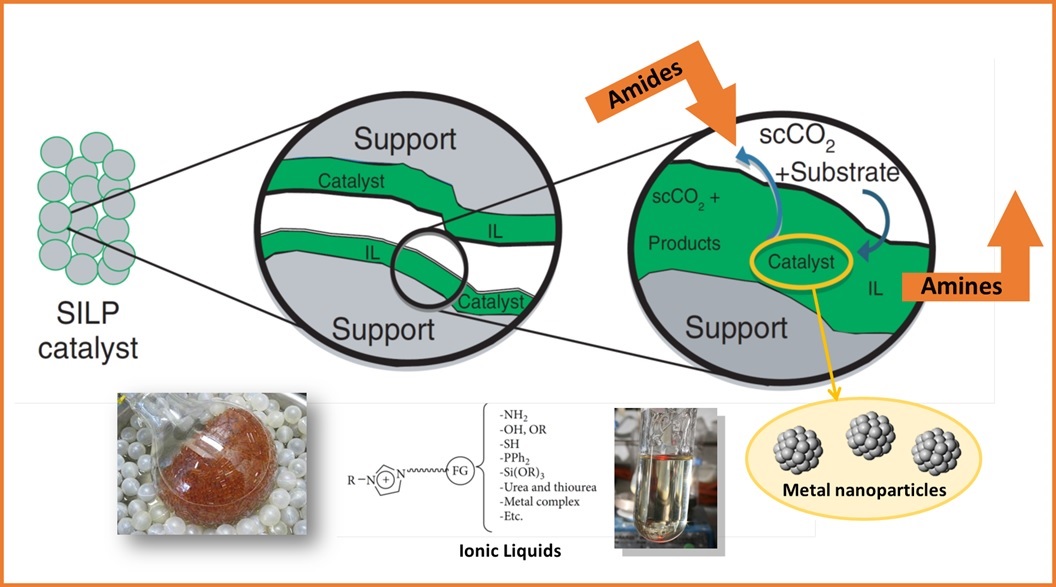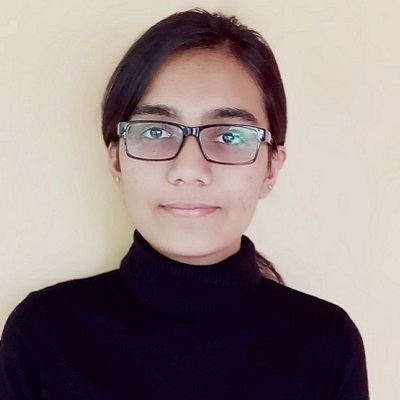ESR11 Project
Selective hydrogenation of amides with supported transition metal nanoparticles
Recruting institution: DTU
Diploma-delivering institutions: DTU, UPS
Thesis co-directors: Anders Riisager (DTU, Lingby, DK), Karine Philippot (LCC, Toulouse, FR), Rosa Axet (LCC, FR)
Secondment host: IFP Energies Nouvelles (FR)
Objectives
Develop new catalysts (mono- and bimetallic) based on supported metal nanoparticles [1] for the hydrogenation of amides reactions [2]. Higher efficiency is expected owing to the high surface/volume ratio provided by the ultra-small nanoparticles produced by the organometallic approach. Apply the best catalytic systems to continuous flow conditions using the SILP thechnology [3]; optionally in combination with scCO2 as substrate carrier for low-volatile substrates
[1] T. Ayvali, K. Philippot, in New Materials for Catalytic Applications, E. Kemnitz and V. Parvulescu (Eds.), Elsevier, 2016, 41-79; C. Amiens, D. Ciuculescu-Pradines, K. Philippot, Coord. Chem. Rev., 2016, 38, 409-432.
[2] A. M. Smith, R. Whyman, Chem. Rev., 2014, 114, 5477-5510. [3] (a) Supported Ionic Liquids: Fundamentals and Applications, R. Fehrmann, A. Riisager, M. Haumann (eds), 2014, Wiley-VHC. (b) A. Riisager and R. Fehrmann, WO2006122563A1 (Wacker Chemie). (c) A. Riisager, R. Fehrmann, J. Xiong and E.J.Garcia-Suarez, WO2011026860A1 (DTU)
Expected Results
Obtain nanocatalysts that react under much milder conditions (T≤100°C and P(H2) ≤20 bar) than those reported today, which work under harsh conditions (T~150-300°C ; P(H2)~100-350 bar) and evaluate their recyclability for at least 5 successive runs. Combine the advantage of the catalytic performance of nanocatalysts with those of the SILP technology to perform continuous liquid phase flow catalysis in a fixed bed reactor.


Deepthy Krishnan
PhD student - ESR11
A self motivated person from Kerala, India. Holds a Bachelor’s degree in Chemistry from University of Calicut, Kerala, India. Obtained Master’s degree in Chemistry from Cochin University of Science and Technology, India. Received the JNCASR Summer Research Fellowship (2019) to undertake an internship (Electrochemistry of transition metal phthalocyanines) at Indian Institute of Science, India. Undertook master thesis work (Synthesis of 2D Pt nanosheets) at LPCNO, National Institute for Applied Sciences (INSA), Toulouse, France through the Nano-X incoming mobility program (2020). In CCIMC, ESR-11 I will be working to develop new catalysts (mono- and bimetallic) based on supportedmetal nanoparticles for the hydrogenation of amides reactions.
